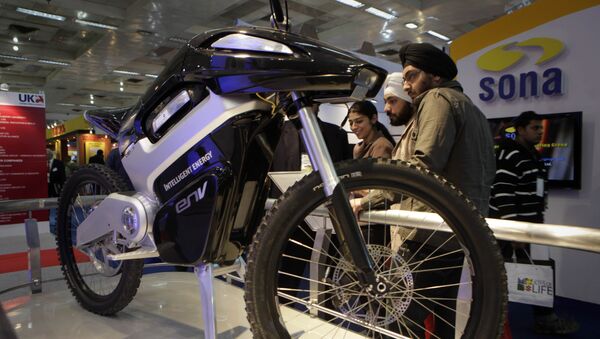New Delhi (Sputnik) – The Indian Space Research Organisation had, in fact, come out with a demonstration vehicle which was powered by hydrogen, says former ISRO chief G. Madhavan Nair. Four years ago, India’s Tata Motors and the space agency developed a hydrogen-powered bus after several years of research.
"In the long run, I will say that hydrogen-based thing will be the right choice because hydrogen has to become the fuel of the next generation," Nair told the PTI in an interview.
The big challenge, however, is to adopt the existing hydrogen fuel cell technology in a cost-efficient manner to make them financially viable.
"And how to generate hydrogen in an economical way and then how to make fuel cells…these are some of the technology challenges. We should mount a research and development programme in this regard," Nair added.
The former ISRO chief also raised the issue of disposing of lithium-ion batteries after use in electric vehicles.
“Lithium, you cannot throw it around. That becomes the most polluting thing. There has to be an adequate mechanism for collection and reprocessing," Nair further said.
“Lithium is already in use and is costly because we have to depend on imports. In India’s case, a bigger challenge is to create an infrastructure for running electric vehicles and charging them. At present, a lot of investment is required. Electric vehicles need the kind of infrastructure like the one needed for petrol cars,” Group Capt (Retd.) Ajey Lele, Senior Fellow, at the Institute for Defence Studies and Analyses told Sputnik.
India is looking at having an all-electric car fleet by 2030 with an express objective of lowering the fuel import bill and the running cost of vehicles.
India’s Minister for Transport Nitin Gadkari has already warned automobile manufacturers in the country that they should go for eco-friendly alternative fuels, else he would 'bulldoze' them.



